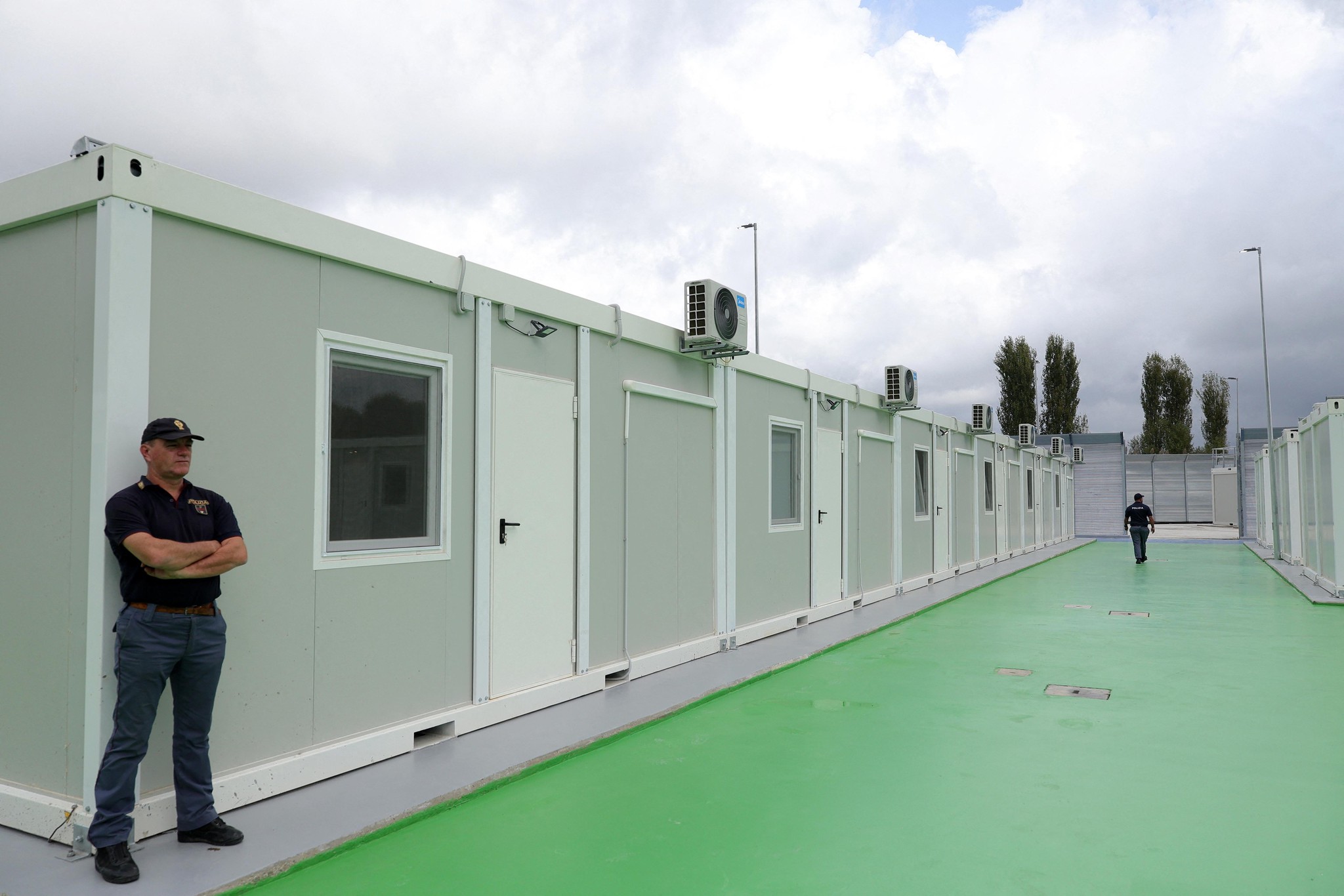Paperless from Mayotte: The invisible victims of Cyclone Chido
- We have brought to our attention the term "necropolitics" of the Cameroonian political scientist Achille Mbenbe. He looks at citizenship and power from the prism of death, and makes it clear that the lives of certain groups of people are underestimated, invaluable, and therefore can calmly disappear. He is studying how power – and authorities – influence lives. That's where we looked at the day after Cyclone Chido. Officially, because even though there are "about forty" dead, in reality there have been "thousands or tens of thousands". This difference can only be understood thanks to the keys of reading that the necropolitics entails: they have counted those who have French citizenship, not foreigners. However, they had not previously considered the paperless ones that survived in the huts. This is the necropolitics, carried by the French State.

It has been two months since Cyclone Chido crossed the island of Mayotte. With wind gusts of 220 km/h, they have experienced the most violent cyclone not seen in the last 90 years, taking everything from zone to zone in its whirlwind. Officially, "one in forty" has lost his life, but in reality, it is "thousands or tens of thousands". How can there be such a difference? We have a perfect example of necropolitics there. Necropolitics is a term popularized in 2003 by the Cameroonian researcher and political scientist Achille Mbenbe, who looks at citizenship and power from the prism of death to explain that the lives of certain groups of people – in her article, the most racialized people – are undervalued and worthless, that is, we would not miss them even if they died.
The undocumented people who died in Chido’s depopulation have not been able to count them, they have only taken into account those registered under French citizenship. One third of those living in Mayotte, between 100,000 and 200,000, are paperless. The island of Mayotte is located in the Indian Ocean between Madagascar and Mozambique and is part of the French State at 8,000 kilometres from the French Metropolitan Area. Given the poverty inferred by the colonial past and neocolonialism, in the hope of better living conditions, the desire to go to that "France" that is very close to them is not surprising. The Gross Domestic Product (GDP) of Mayotte is 13 times higher than that of the three neighbouring islands that make up the Comoros and 25 times higher than that of Madagascar.
However, this piece of land, colonized in 1841, remains secondary to the view of Paris –we can also talk about necropolitics–: the GDP is 3.5 times lower than in the French Metropolis and 77% live under the poverty barrier. But being better than what they have on the neighboring island, they prefer to attend. "As for the Comoros of Mayotte, it is difficult for me to talk about 'foreign migrants'. There's only one town. These citizens, whether born in Mayotte, Anjuan or the Great Comore, share the same language, the same religion, the same conception of kinship, continue to marry each other. Nothing distinguishes them except that some of that territory unite under French citizenship and others do not," says ethnologist Sophie Blanchy. The current situation cannot be understood without taking into account France ' s colonizing past. In 1841 he colonized Mayotte and in 1886 the three surrounding islands – Anjuan, Comores Grandes and Moheli. They united the four with the name "Mayotte and dependencies" to the colony. Until then, high, each island was independent, each had its own sultan, and they went ahead both peacefully and in war with each other. Mayotte would be considered the capital, and in contact with the colonists, a local bourgeoisie would develop there. The decolonization of African colonies began in the 1960s. In the Comoros, no.
1974 referendum over legislation
In 1974, Paris held a referendum on independence. The results were clear: 95% of the Comoros opted for independence. But with 63% of Mayotte advocating for France’s internal presence, Paris overtook UN legislation and held Mayotte under its control, giving the other three back independence. The UN says that the borders of former colonies must be respected when independence is restored. For the separation of Mayotte, the French Government has been condemned about twenty times. Mayotte stays in 1995 were conditional on a visa: They placed a border between geographically and culturally close Comoros and also made the one who came to visit relatives or friends of Mayotte "clandestine" overnight.
On this day after Cyclone Chido, Paris does not care about reconstruction, but about managing immigration. Assimilated by the rhetoric of the extreme right, Prime Minister François Bayrou confirms that "immigration is on the rise". The Minister of the Interior, Bruno Retailleau, the Minister of Overseas Affairs, Manuel Valls and the Minister of the Navy, Sébastien Lecornu, have released a document: “Without fermity on migration, we would rebuild Mayotte on sand.” The lack of respect and consideration for the dead and those who mourn would be unbearable for the Comoros.
The Achievement of Citizenship, Stronger in Mayotte
The creation in the French State implies French citizenship at the age of 18. Because the French Constitution guarantees citizenship according to the place of origin. Well, the law of September 10, 2018 limited the right to those created in Mayotte: they have citizenship if at least one of the two parents is in a regular state during the previous three months. They want to make the achievement even harder now: they want both parents to be on a regular basis during the twelve months before childbirth.
Necropolitics also includes this prior graduation of legislation. Since 2014, residence permits have been valid only for Mayotte, whose entry to other departments is prohibited. The sociologist Nicolas Roinsard says clearly: "The state places an internal boundary between the citizens who can live and the non-citizens who must die."
The atmosphere on the island is appalling: only a few, but with the complicity of the state, have their necropolitics taken over. They are occupying the entrance to the Office of Foreigners, in order to block requests for regularization. Imagine the offices that could have been kept open for two or three months last year. They also frustrate the day-to-day life of the Cimade association that is helping immigrants.
With the process of regularization interrupted, how many thousands have become "clandestine"? How many of these did Chido take? The next day it was discovered that, even after hearing the warning of the cyclone, they stopped in the huts, fearing expulsion, thinking that the call to the shelters was a slap in the face. Mayotte is ruled by necropolitics.












